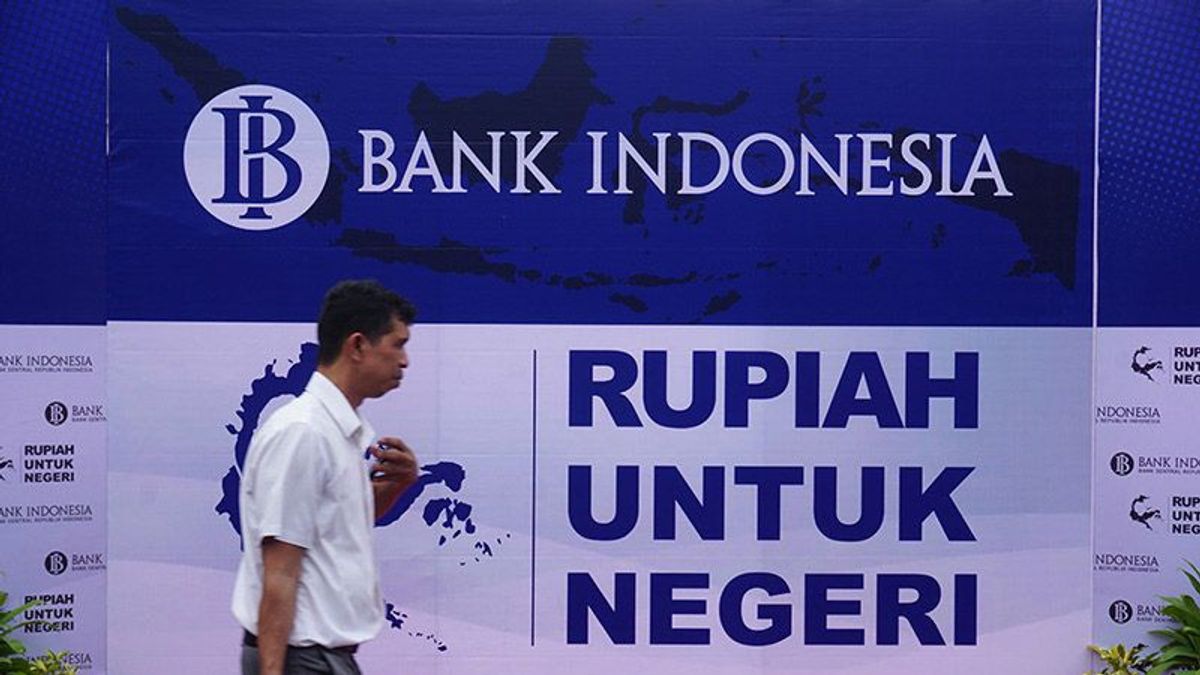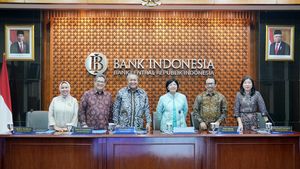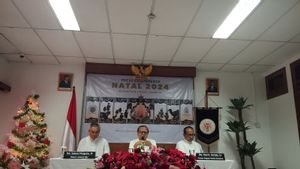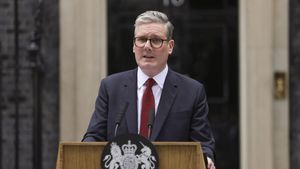JAKARTA - Bank Permata economist Josua Pardede assessed that the government needs to immediately reduce inflation, especially in December and January 2023.
Because, when the government is able to reduce inflation, it is predicted that Bank Indonesia will not be too aggressive to raise the benchmark interest rate.
"Especially to anticipate the price of volatile goods. This is due to the possibility of BI to raise interest rates in the first quarter of 2023," said Josua, Tuesday, December 20. According to Josua, Indonesia's current inflation conditions tend to normalize. In fact, he estimates inflation at the end of 2023 could be below four percent. "Therefore, in terms of inflation, it is estimated that by the end of 2023 it will be in the range of 3.0 percent to 3.5 percent," he said. However, Josua advised the government to be aware of the shocks in the rupiah when the global recession actually occurs. Because it will trigger an increase in the price of goods imported from abroad. "One of the risks that the government needs to pay attention to at this time is the potential for shocks in the rupiah at a time when risk-off sentiment strengthens when a recession occurs, which results in an increase in the price of imported goods," he said. Josua said, when the government was able to contain inflation so that the price of goods was not too high, then BI would also maintain the benchmark interest rate.
However, when the price increase is unstoppable, BI is predicted to raise the benchmark interest rate to 6 percent by 2023.
"It will repeat history in 2018, when interest rates reached 6 percent by the end of 2018, economic slowdowns tend to occur in 2019," he said. Previously, Chairman of the OJK Board of Commissioners Mahendra Siregar said the dilemma was a challenge for the future economy.
First, lower inflation by increasing interest rates. Second, lower interest rates in the face of recession so that the wheels of the economy can continue to move.
"But next year two things will happen all at once. Inflation is high. The recession is severe. So raising the interest rate is getting more recession, it doesn't continue to increase the inflation rate. This is an extraordinary dilemma," he said.
The government itself believes that the Indonesian economy remains solid amid global uncertainty and a decline in world economic growth.
In the third quarter of 2022, the Indonesian economy was able to record 5.72 percent growth on an annual basis (yoy).
Coordinating Minister for Economic Affairs Airlangga Hartarto said the projected economic growth in 2023 reached 5.3 percent.
"With the consideration of various global and domestic risks, we are optimistic about Indonesia's economic growth projection of 5.2 percent in 2022 and 5.3 percent in 2023," explained Airlangga. BI Needs to Keep the Flow of Exit Capital
Meanwhile, LPEM UI's Macroeconomic and Financial Market Researcher, Teuku Riefky, said the need for a central bank to keep real capital outflows under control.
"BI needs to maintain a differential rate while at the same time paying attention to the pace of domestic inflation and the rupiah exchange rate," he said.
"So if the Fed is still aggressive, BI also seems to have to maintain the aggressiveness of tightening interest rates to keep the capital outflow relatively under control and the stability of the rupiah exchange rate maintained," he continued.
Then to maintain the inflation rate, Teuku Riefky suggested, a number of extra efforts or extra efforts must continue to be carried out by the government.
"Apart from conventional monetary policy, so far TPIP-TPID coordination and thickening of social safety nets are relatively capable of controlling inflation and maintaining people's purchasing power," he concluded.
The English, Chinese, Japanese, Arabic, and French versions are automatically generated by the AI. So there may still be inaccuracies in translating, please always see Indonesian as our main language. (system supported by DigitalSiber.id)












